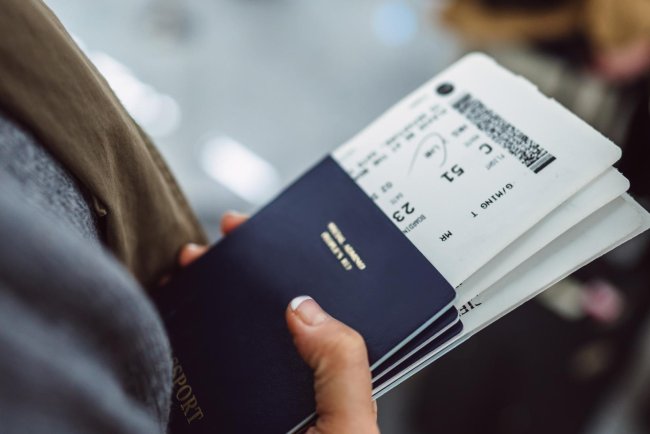1. What is travel insurance, and why do I need it?
Travel insurance is a policy designed to protect you from financial loss and provide assistance in case of unexpected events during your trip. It covers a variety of scenarios like trip cancellations, medical emergencies, lost luggage, and travel delays. Having travel insurance is crucial because it gives you peace of mind and financial protection against unforeseen issues that can arise while traveling.
2. How much does travel insurance typically cost?
The cost of travel insurance varies depending on factors such as your destination, age, length of the trip, and coverage options. On average, travel insurance costs range from 4% to 10% of your total trip cost. For example, if your trip costs $3,000, you can expect to pay between $120 and $300 for travel insurance. However, specific factors like higher medical coverage or risky destinations can increase the cost.
3. How does my destination affect travel insurance costs?
Your destination plays a significant role in determining the cost of travel insurance. Traveling to countries with higher healthcare costs, like the United States or Canada, typically results in more expensive insurance premiums. Similarly, if you're visiting areas prone to natural disasters or political instability, the risk factor increases, leading to higher policy costs.
4. Why does the length of my trip impact the cost of travel insurance?
The longer you travel, the higher the likelihood that something could go wrong, such as medical issues or trip interruptions. As the exposure to potential risks increases with the length of your trip, insurers raise the premiums. Shorter trips generally have lower costs because the risk exposure is lower, whereas extended travel requires a more expensive policy to cover the longer duration.
5. How does my age influence the cost of travel insurance?
Older travelers usually face higher travel insurance premiums because they are more likely to require medical attention while abroad. The risk of pre-existing health conditions also plays a role in increasing the cost. Young, healthy travelers tend to pay less for insurance, while seniors or those with chronic health issues may face higher premiums due to the greater likelihood of filing a medical claim.
6. What is the impact of pre-existing medical conditions on travel insurance?
If you have a pre-existing medical condition, it could raise the cost of your travel insurance. Insurers often view travelers with pre-existing conditions as higher risk because of the increased possibility of medical emergencies during the trip. Some policies may exclude coverage for pre-existing conditions, while others offer coverage at an additional cost. It’s important to disclose any medical conditions when purchasing travel insurance to avoid denied claims later.
7. What types of coverage can I include in my travel insurance policy?
There are several types of coverage available, including:
- Trip cancellation/interruption: Protects you financially if you need to cancel or cut short your trip for covered reasons (illness, death, natural disaster).
- Medical coverage: Covers emergency medical expenses during your trip.
- Baggage protection: Reimburses you for lost, stolen, or damaged luggage.
- Emergency evacuation: Pays for transportation to a medical facility if you suffer a serious illness or injury.
- Accidental death and dismemberment: Provides a benefit in the event of death or severe injury during the trip. Comprehensive plans combine multiple types of coverage, but cost more than basic plans that cover only one or two risks.
8. How do policy limits affect the cost of travel insurance?
Policy limits refer to the maximum amount an insurer will pay for a covered event, such as medical emergencies or trip cancellations. If you choose a policy with higher limits, the cost of your travel insurance will increase. Lower limits result in cheaper premiums but may leave you underinsured in case of a major incident. It’s essential to balance coverage needs with budget constraints when selecting your limits.
9. Do adventure activities like skiing or scuba diving affect my travel insurance cost?
Yes, participating in adventure activities such as skiing, scuba diving, or bungee jumping can increase your travel insurance cost. These activities are considered higher risk by insurers due to the greater likelihood of accidents and injuries. Standard travel insurance policies may exclude coverage for extreme sports, so you might need to purchase a specialized plan or add an adventure sports rider, which increases the premium.
10. What is a "Cancel for Any Reason" (CFAR) add-on, and how does it affect policy cost?
Cancel for Any Reason (CFAR) is an optional add-on that allows you to cancel your trip for reasons not typically covered by standard insurance, such as changes in personal plans or simply deciding not to travel. This flexibility increases the cost of your policy, typically adding 40–60% to the premium. However, CFAR coverage only reimburses a percentage of your trip cost (usually 50–75%), so it’s important to weigh the extra cost against the benefits.
11. What is emergency medical evacuation coverage, and when should I consider it?
Emergency medical evacuation coverage ensures that if you fall seriously ill or are injured while traveling, you will be transported to the nearest medical facility. This coverage is especially important if you are traveling to remote or underdeveloped areas where medical care may be inadequate. Adding this coverage increases the cost of your travel insurance but provides peace of mind, knowing that you can receive emergency care when needed.
12. How does the number of travelers on my policy impact the cost?
If you're purchasing a travel insurance policy for a group or family, the number of travelers included will affect the overall cost. Adding more people increases the premium because the insurer's risk exposure grows with each additional person. Family or group travel insurance plans may offer discounted rates, but the total price will still be higher than if you were buying insurance for just one person.
13. Can I save money by buying an annual travel insurance policy?
If you travel frequently, an annual multi-trip travel insurance policy might save you money compared to purchasing separate policies for each trip. These policies cover multiple trips within a year and are often more cost-effective for frequent travelers. However, ensure that the policy covers the types of trips you plan to take and any specific activities or destinations that might require additional coverage.
14. Are there discounts available for travel insurance?
Yes, some insurers offer discounts on travel insurance for specific groups, such as students, seniors, or members of certain organizations. Additionally, you may find promotions, seasonal deals, or loyalty discounts for returning customers. Bundling travel insurance with other policies, such as home or auto insurance, may also provide cost savings.
15. Does travel insurance cover COVID-19-related cancellations or medical emergencies?
Many travel insurance policies now offer coverage for COVID-19-related cancellations, delays, or medical emergencies, though this varies by provider. Some policies may cover trip cancellations due to a positive COVID-19 test, while others might include medical treatment and quarantine expenses if you contract the virus during your trip. Always read the policy details carefully to ensure that COVID-19-related issues are covered.
16. What is the difference between trip cancellation and trip interruption coverage?
Trip cancellation coverage reimburses you for prepaid expenses if you have to cancel your trip before it begins for covered reasons, such as illness or natural disasters. Trip interruption coverage, on the other hand, provides reimbursement if your trip is cut short after it has already started. Both types of coverage are essential for protecting your investment, but they address different points in your travel timeline.
17. How does lost or delayed baggage coverage work in travel insurance?
Lost or delayed baggage coverage compensates you if your luggage is lost, stolen, or significantly delayed during your trip. Policies typically provide reimbursement for the value of lost items or for essential items you need to buy if your luggage is delayed. Coverage limits and exclusions vary, so it’s important to know what your policy covers and any restrictions on high-value items like electronics or jewelry.
18. Will my travel insurance cover me if I miss my flight?
Some travel insurance policies offer missed connection coverage, which reimburses you for costs incurred due to missing a connecting flight or other transportation as a result of delays or cancellations. This coverage can help pay for rebooking fees, accommodation, or meals while you wait for the next available flight. Be sure to check if your policy includes this benefit, as it’s not always included in basic plans.
19. Can I cancel my travel insurance policy after purchase?
Yes, most travel insurance providers offer a "free look" or "cooling-off" period (usually 10–14 days) after purchasing the policy, during which you can cancel for a full refund, provided you haven’t started your trip or filed a claim. After this period, you may still be able to cancel, but refund policies vary by insurer, and you might not receive a full refund.
20. How do I file a claim on my travel insurance policy?
To file a claim, contact your insurer as soon as possible and provide the necessary documentation, such as medical records, receipts, or police reports, depending on the type of claim. Most insurers have an online portal where you can submit claims, or you may need to fill out forms and send them via email or mail. Be sure to read your policy’s guidelines on claim filing, as timely submission and proper documentation are crucial for a successful claim.




















